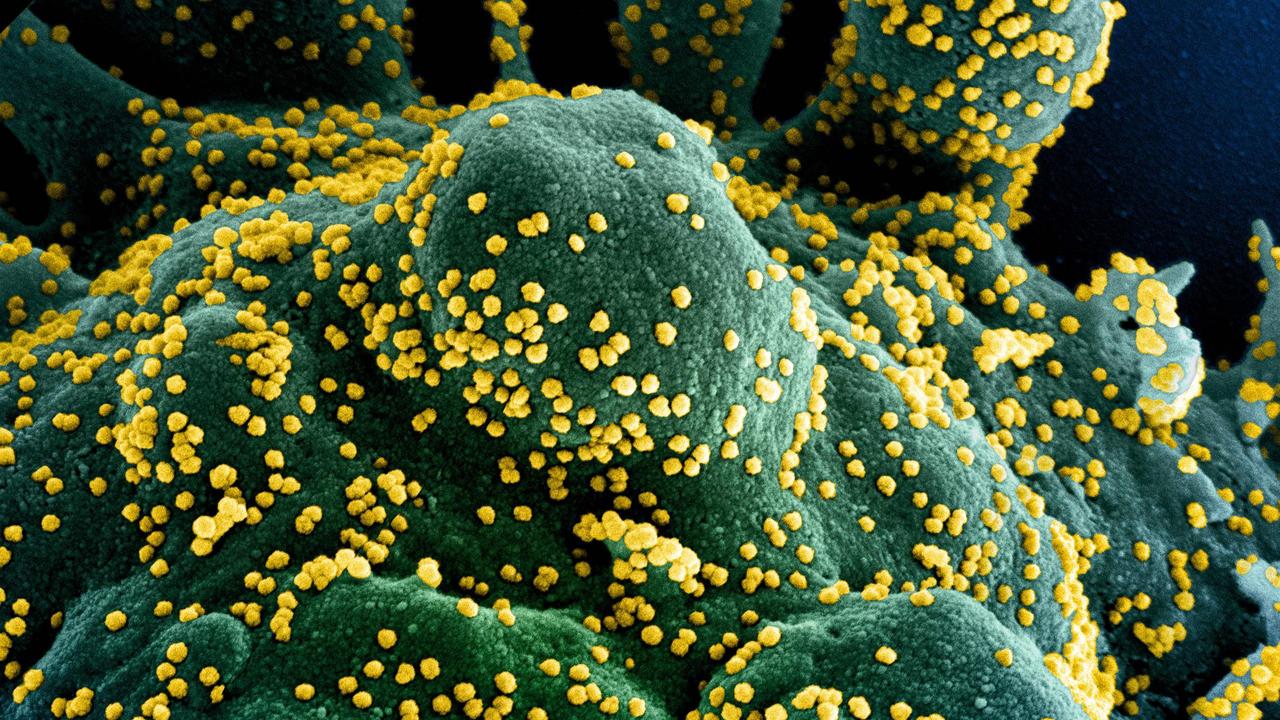[ad_1] Aussies are being urged to practice good hygiene over the festive season, as one state battles an unseasonal increase in respiratory infectio
[ad_1]
Aussies are being urged to practice good hygiene over the festive season, as one state battles an unseasonal increase in respiratory infections.
There are currently 322 patients in Queensland hospitals with COVID-19 and 66 patients in hospital with influenza, according to Queensland Health.
The latest data revealed there had been 2,162 cases of COVID-19 and 836 cases of influenza recorded in Queensland in the last seven days.
Queensland chief health officer John Gerrard said the recent increase in hospitalisations due to respiratory infection was unusual for this time of year for the sunshine state.
“The number of patients hospitalised with COVID-19 started climbing in mid-October, plateaued throughout November, and then took a surprising turn upwards again in December,“ Dr Gerrard said.
“The current number of Queenslanders in hospital with COVID-19 is more than four times higher than mid-October.
“While influenza hospitalisations remain far below their winter peak (more than 400), their summer rise is still unusual.”
There have been more than 73,000 influenza cases recorded so far in Queensland in 2023, far exceeding the 2022 total of 44,431.
Dr Gerrard said the number of tests coming back positive for Mycoplasma, a strain of pneumonia, had also tripled since the end of November.
“We have not seen significant numbers of cases of Mycoplasma infection since before the COVID-19 pandemic,” he said.
“The increase in cases corresponds with similar recent experiences in the Northern Hemisphere.”
Dr Gerrard said people gathering together more frequently for Christmas plus the influx of travellers from interstate and overseas could be the cause of the current respiratory infection rate rise across the state.
“I urge everyone, especially during upcoming festive gatherings, to practice good hand hygiene habits and stay away from vulnerable friends and relatives if you are sick,” he said.
“Older adults and young children are especially vulnerable to respiratory infections, so it’s important we protect our loved ones this festive season by staying home when we are sick.”
Dr Gerrard also encouraged Queenslanders over 65 to get a COVID-19 booster if they had not had one this year.
New South Wales
On Thursday, NSW Health’s latest data reported 6,210 cases of COVID-19, influenza and RSV had been recorded in the fortnight leading up to December 16.
“As we head into the Christmas period, COVID-19 remains at high levels and continues to increase across the community, especially in young children and adults aged 17-49 years,” NSW Health stated.
NSW Health warned recorded cases of COVID-19, influenza and RSV had all increased in the past fortnight.
The largest COVID-19 increases were in people aged 0-4 and 20-49 years, while those aged 10-29 recorded the largest increase for influenza across the state.
Meanwhile, the increase in RSV occurred in children aged 0-4 years.
Victoria
Meanwhile, Victoria Health confirmed the number of people in hospital with COVID-19 had declined again with a daily average of 266 in the week ending on December 15.
The data showed the number of those people hospitalised was down from 274 the week prior and ending on December 8.
However, the health authorities warn the current average remains high compared to recent months but still remains below the most recent peak in May and June.
“Quantitative wastewater measures indicate there are high COVID-19 viral loads in Victorian wastewater,” Victoria Health stated.
“Metropolitan wastewater catchments have shown increased levels in the most recent samples, while regional quantitative wastewater levels continue to remain high.”
South Australia and WA
South Australia recorded 1,674 Covid-19 cases in the week ending on December 13.
Meanwhile, there were 458 Covid-19 cases reported in West Australia between December 4 to December 10.
[ad_2]
Source link



COMMENTS